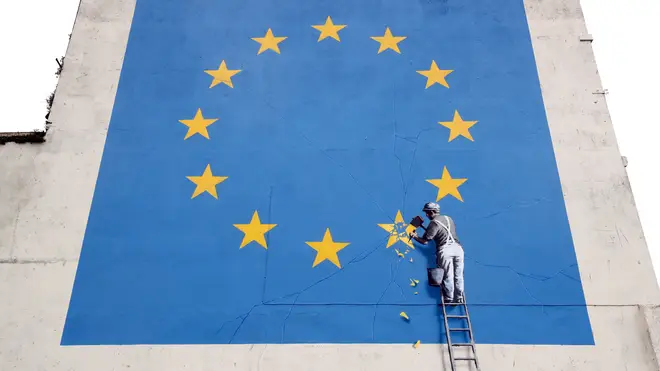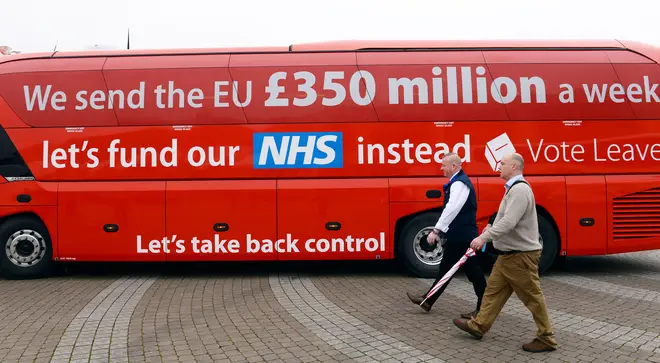
Clive Bull 1am - 4am
30 January 2020, 13:54 | Updated: 31 January 2020, 09:42

The UK will leave the European Union at 11pm on 31st January. So what will change when Brexit happens? This is everything you need to know about the consequences of Brexit Day.
The EU Withdrawal Bill has officially become law, meaning that the UK will leave the EU on 31st January and Brexit will have officially happened.
What does this mean for UK citizens travelling in Europe or with foreign investments? This is what you can expect to happen after Brexit.
Brexit Day is a moment for both optimism and regret: Nick Ferrari
Britain will officially leave the European Union at 11pm on Friday 31st January.
Brexit was supposed to take place on 29th March 2019, two years after Article 50 was invoked by Theresa May, triggering the exit process.
But after the withdrawal bill was rejected by MPs a number of times, the EU granted an extension - originally until 12th April and then to 31st October.
With parliament still deadlocked - and with the Benn Act preventing a no-deal Brexit - Boris Johnson was legally required to request an extension and a new departure date of 31st January 2020 was agreed.
The simple answer is: very little.
The UK has agreed a transitional period with the European Union, during which time the UK will abide by EU rules despite no longer being a member. That will allow businesses to make the necessary adjustments and changes to their operation for when the country fully leaves on 31st December 2020.
So the following benefits of membership of the EU will all stay the same after 31st January:
- EU citizens arriving in the UK - and UK citizens arriving in the EU - continue to enjoy the same rights on freedom of movement.
- The UK will still be part of existing EU trade deals, but will now able to negotiate its own trade deals.
- The UK remains in the customs union and single market and is subject therefore to EU regulations.
- Security co-operation will continue.
- The UK will still be subject to EU law and the rulings of the European Court of Justice.
- The UK will effectively stay part of the Common Fisheries Policy.

Most obviously, the UK will not have any MEPs in the European Parliament. There will also be no UK commissioner and UK ministers will no longer attend meetings of the EU Council.
The UK will not take part in any EU Summits
During the transition period, any new EU laws made will be scrutinised in a new UK process.
New passports already have the words European Union removed from the cover and the process has begun to change the colour of the cover back to dark blue.
One small change: the UK will no longer be able to extradite suspects from Germany. Their law insists they only extradite people to other EU countries, so the UK will not be a part of that.
And let's not forget the newly-minted Brexit 50p coins coming into circulation.
Other than that - and a minor change over the European Arrest Warrant - everyday life will stay the same.
The government will start negotiating a deal for the UK's future relationship with the European Union.
Boris Johnson has insisted there will be no extension to the transition period, meaning that this deal has to be agreed by the end of 2020 or the UK will leave without a deal and tariffs on all exports.
Trade, security, justice and law enforcement must also be agreed by the time the UK leaves the EU on 31st December 2020.